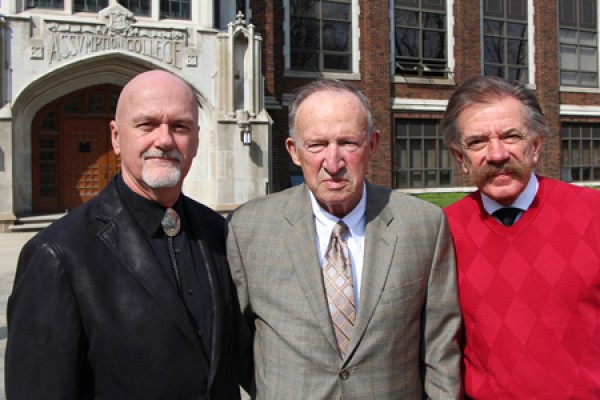
Seeing the UWindsor School of Social Work prepare to relocate into the former Windsor Star buildings brings back a lot of memories for Francis Turner.
A native of the city, he delivered the newspaper on a route near his boyhood home between Bruce and Janette avenues near Giles Boulevard.
“This was just at the end of the Second World War, so people were very anxious for news,” he recalls. “You really felt you were providing an important service to them.”
A professor emeritus from Wilfrid Laurier University’s Faculty of Social Work, Dr. Turner is the editor of many seminal texts including Social Work Treatment: Interlocking Theoretical Approaches; Differential Diagnosis and Treatment in Social Work; and Social Work Diagnosis in Contemporary Practice.
One of his former students—Brent Angell, director of the UWindsor School of Social Work—calls Turner “undoubtedly the most respected social work academic and leader ever to come from Canada.”
He was in Windsor last week to speak to a professional development seminar for social workers, students, and faculty, which was hosted by Dr. Angell and sponsored by the School of Social Work’s Community Partners for Applied Social Research and Consultation (CPARC).
Turner says one of the most important developments in the profession is its melding of theories from other disciplines with those of social work to better effect change and build capacity for social betterment. As an example, he discussed how the principles and practices used in business related to accountability and measurable outcomes could apply to the not-for-profit sector.
He also pointed to his long-time hobby of astronomy and aerospace as an illustration of the increasing cross-pollination of ideas.
“I took up star-gazing as a way to escape from my regular work,” says Turner. “I thought you couldn’t get much further from social work than space. Besides, it was a lot easier to look the man in the moon in the face than an angry faculty colleague.”
However, now he sees avenues for social work in questions of human exploration of deep space.
“Social workers know a lot about people who are isolated or forced to live in close quarters,” he says. “The last thing I would have thought is that social work could contribute to the cutting edge of scientific exploration!”
About 100 professionals and students attended the April 17 CPARC symposium.
